
PurpleLlama
Set of tools to assess and improve LLM security.
Stars: 4030
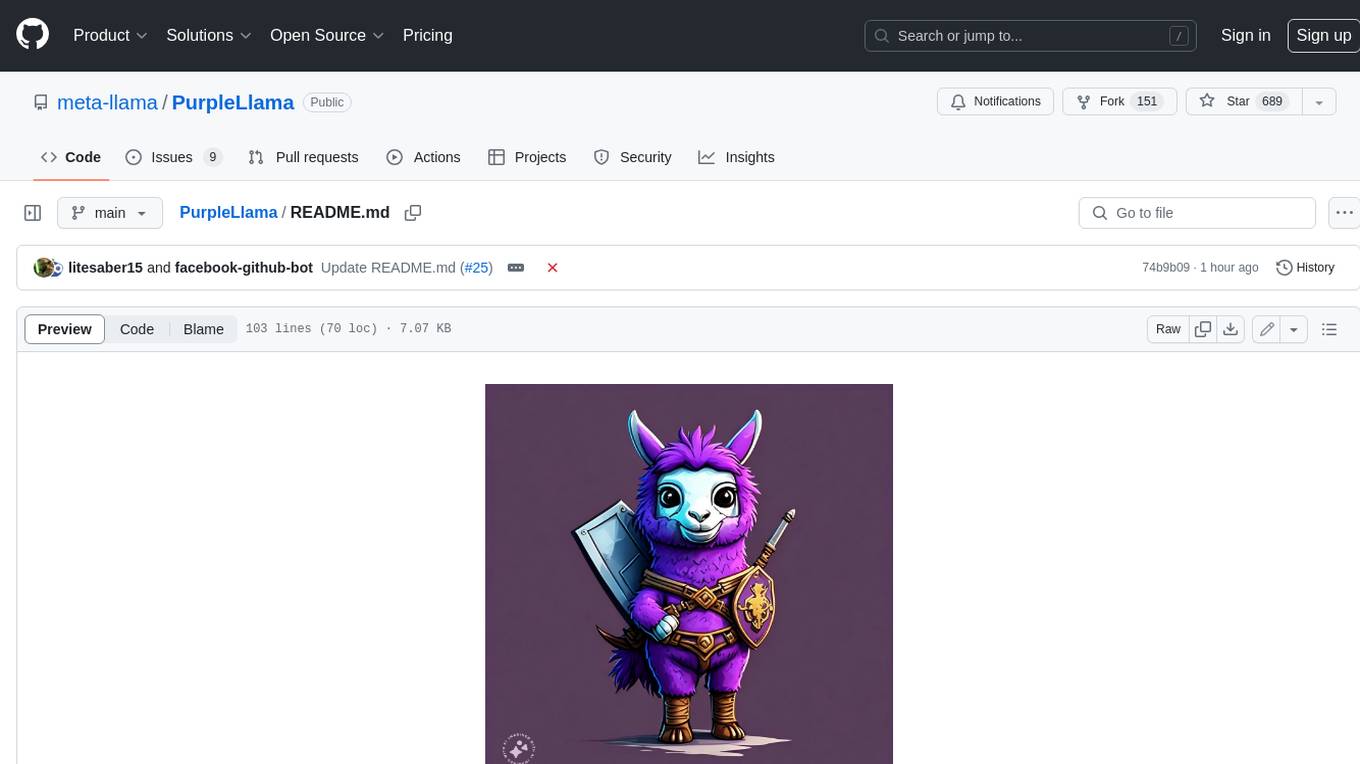
Purple Llama is an umbrella project that aims to provide tools and evaluations to support responsible development and usage of generative AI models. It encompasses components for cybersecurity and input/output safeguards, with plans to expand in the future. The project emphasizes a collaborative approach, borrowing the concept of purple teaming from cybersecurity, to address potential risks and challenges posed by generative AI. Components within Purple Llama are licensed permissively to foster community collaboration and standardize the development of trust and safety tools for generative AI.
README:
🤗 Models on Hugging Face  | Blog  | Website  | CyberSec Eval Paper   | Llama Guard Paper 
Purple Llama is an umbrella project that over time will bring together tools and evals to help the community build responsibly with open generative AI models. The initial release will include tools and evals for Cyber Security and Input/Output safeguards but we plan to contribute more in the near future.
Borrowing a concept from the cybersecurity world, we believe that to truly mitigate the challenges which generative AI presents, we need to take both attack (red team) and defensive (blue team) postures. Purple teaming, composed of both red and blue team responsibilities, is a collaborative approach to evaluating and mitigating potential risks and the same ethos applies to generative AI and hence our investment in Purple Llama will be comprehensive.
Components within the Purple Llama project will be licensed permissively enabling both research and commercial usage. We believe this is a major step towards enabling community collaboration and standardizing the development and usage of trust and safety tools for generative AI development. More concretely evals and benchmarks are licensed under the MIT license while any models use the corresponding Llama Community license. See the table below:
| Component Type | Components | License |
|---|---|---|
| Evals/Benchmarks | Cyber Security Eval (others to come) | MIT |
| Safeguard | Llama Guard | Llama 2 Community License |
| Safeguard | Llama Guard 2 | Llama 3 Community License |
| Safeguard | Llama Guard 3-8B | Llama 3.2 Community License |
| Safeguard | Llama Guard 3-1B | Llama 3.2 Community License |
| Safeguard | Llama Guard 3-11B-vision | Llama 3.2 Community License |
| Safeguard | Prompt Guard | Llama 3.2 Community License |
| Safeguard | Code Shield | MIT |
As we outlined in Llama 3’s Responsible Use Guide, we recommend that all inputs and outputs to the LLM be checked and filtered in accordance with content guidelines appropriate to the application.
Llama Guard 3 consists of a series of high-performance input and output moderation models designed to support developers to detect various common types of violating content.
They were built by fine-tuning Meta-Llama 3.1 and 3.2 models and optimized to support the detection of the MLCommons standard hazards taxonomy, catering to a range of developer use cases. They support the release of Llama 3.2 capabilities, including 7 new languages, a 128k context window, and image reasoning. Llama Guard 3 models were also optimized to detect helpful cyberattack responses and prevent malicious code output by LLMs to be executed in hosting environments for Llama systems using code interpreters.
Prompt Guard is a powerful tool for protecting LLM powered applications from malicious prompts to ensure their security and integrity.
Categories of prompt attacks include prompt injection and jailbreaking:
- Prompt Injections are inputs that exploit the inclusion of untrusted data from third parties into the context window of a model to get it to execute unintended instructions.
- Jailbreaks are malicious instructions designed to override the safety and security features built into a model.
Code Shield adds support for inference-time filtering of insecure code produced by LLMs. Code Shield offers mitigation of insecure code suggestions risk, code interpreter abuse prevention, and secure command execution. CodeShield Example Notebook.
CyberSec Eval v1 was what we believe was the first industry-wide set of cybersecurity safety evaluations for LLMs. These benchmarks are based on industry guidance and standards (e.g., CWE and MITRE ATT&CK) and built in collaboration with our security subject matter experts. We aim to provide tools that will help address some risks outlined in the White House commitments on developing responsible AI, including:
- Metrics for quantifying LLM cybersecurity risks.
- Tools to evaluate the frequency of insecure code suggestions.
- Tools to evaluate LLMs to make it harder to generate malicious code or aid in carrying out cyberattacks.
We believe these tools will reduce the frequency of LLMs suggesting insecure AI-generated code and reduce their helpfulness to cyber adversaries. Our initial results show that there are meaningful cybersecurity risks for LLMs, both with recommending insecure code and for complying with malicious requests. See our Cybersec Eval paper for more details.
CyberSec Eval 2 expands on its predecessor by measuring an LLM’s propensity to abuse a code interpreter, offensive cybersecurity capabilities, and susceptibility to prompt injection. You can read the paper here.
You can also check out the 🤗 leaderboard here.
The newly released CyberSec Eval 3 features three additional test suites: visual prompt injection tests, spear phishing capability tests, and autonomous offensive cyber operations tests.
As part of the Llama reference system, we’re integrating a safety layer to facilitate adoption and deployment of these safeguards. Resources to get started with the safeguards are available in the Llama-recipe GitHub repository.
For a running list of frequently asked questions, for not only Purple Llama components but also generally for Llama models, see the FAQ here.
See the CONTRIBUTING file for how to help out.
For Tasks:
Click tags to check more tools for each tasksFor Jobs:
Alternative AI tools for PurpleLlama
Similar Open Source Tools

PurpleLlama
Purple Llama is an umbrella project that aims to provide tools and evaluations to support responsible development and usage of generative AI models. It encompasses components for cybersecurity and input/output safeguards, with plans to expand in the future. The project emphasizes a collaborative approach, borrowing the concept of purple teaming from cybersecurity, to address potential risks and challenges posed by generative AI. Components within Purple Llama are licensed permissively to foster community collaboration and standardize the development of trust and safety tools for generative AI.
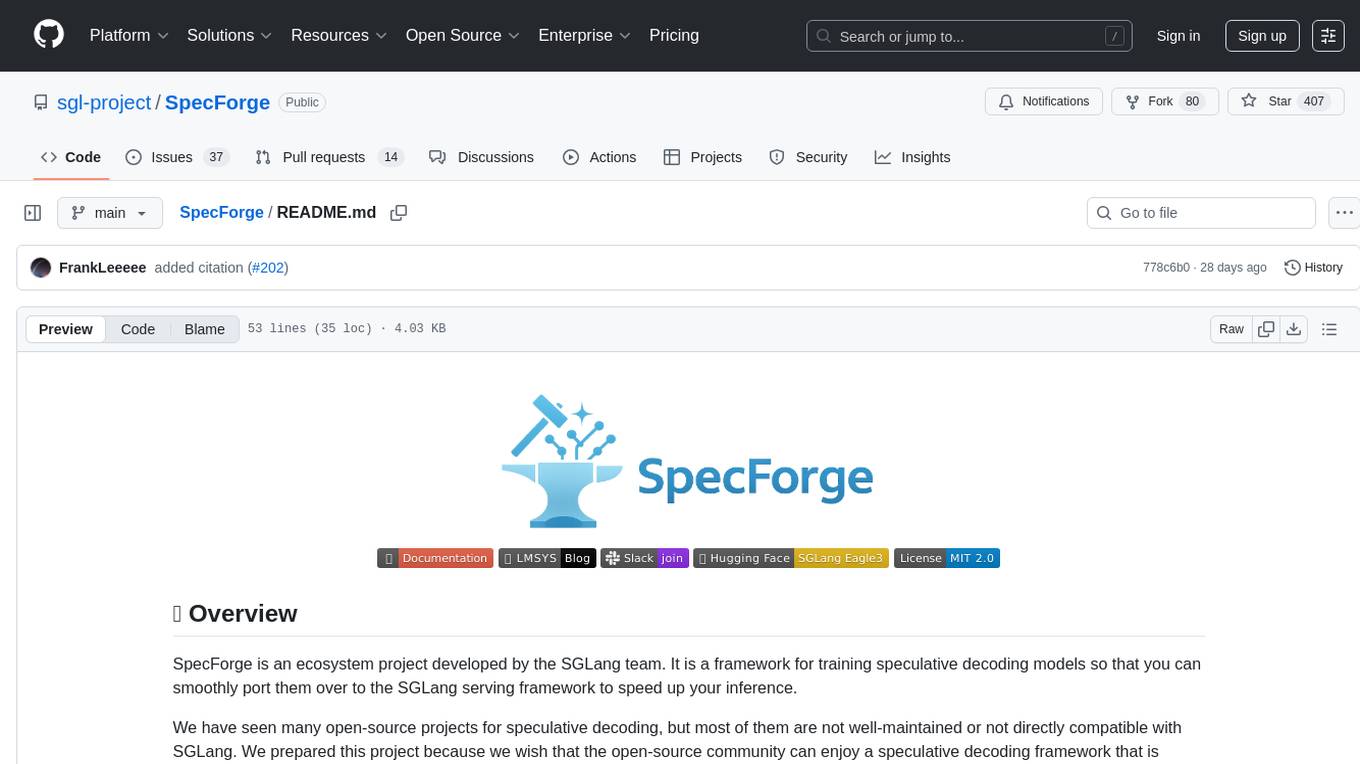
SpecForge
SpecForge is a powerful tool for generating API specifications from code. It helps developers to easily create and maintain accurate API documentation by extracting information directly from the codebase. With SpecForge, users can streamline the process of documenting APIs, ensuring consistency and reducing manual effort. The tool supports various programming languages and frameworks, making it versatile and adaptable to different development environments. By automating the generation of API specifications, SpecForge enhances collaboration between developers and stakeholders, improving overall project efficiency and quality.
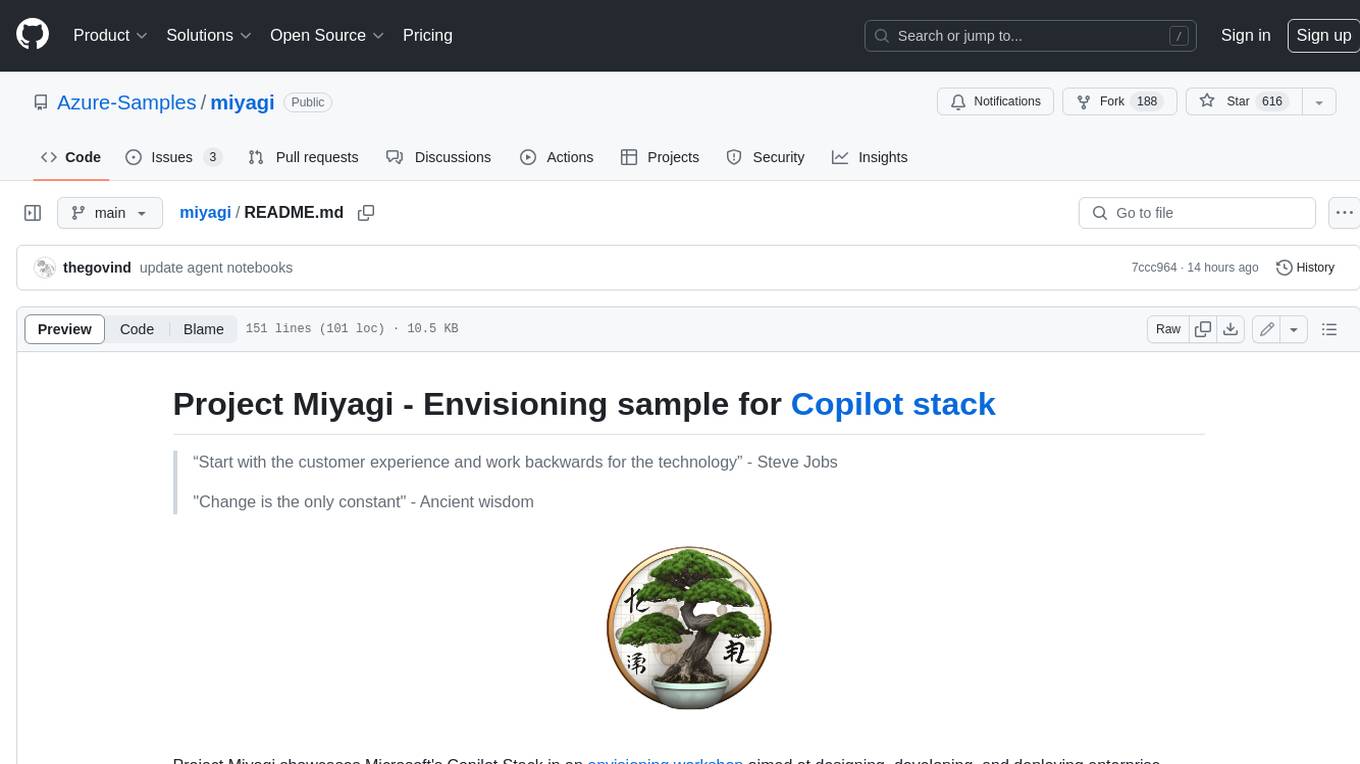
miyagi
Project Miyagi showcases Microsoft's Copilot Stack in an envisioning workshop aimed at designing, developing, and deploying enterprise-grade intelligent apps. By exploring both generative and traditional ML use cases, Miyagi offers an experiential approach to developing AI-infused product experiences that enhance productivity and enable hyper-personalization. Additionally, the workshop introduces traditional software engineers to emerging design patterns in prompt engineering, such as chain-of-thought and retrieval-augmentation, as well as to techniques like vectorization for long-term memory, fine-tuning of OSS models, agent-like orchestration, and plugins or tools for augmenting and grounding LLMs.

agentUniverse
agentUniverse is a multi-agent framework based on large language models, providing flexible capabilities for building individual agents. It focuses on collaborative pattern components to solve problems in various fields and integrates domain experience. The framework supports LLM model integration and offers various pattern components like PEER and DOE. Users can easily configure models and set up agents for tasks. agentUniverse aims to assist developers and enterprises in constructing domain-expert-level intelligent agents for seamless collaboration.
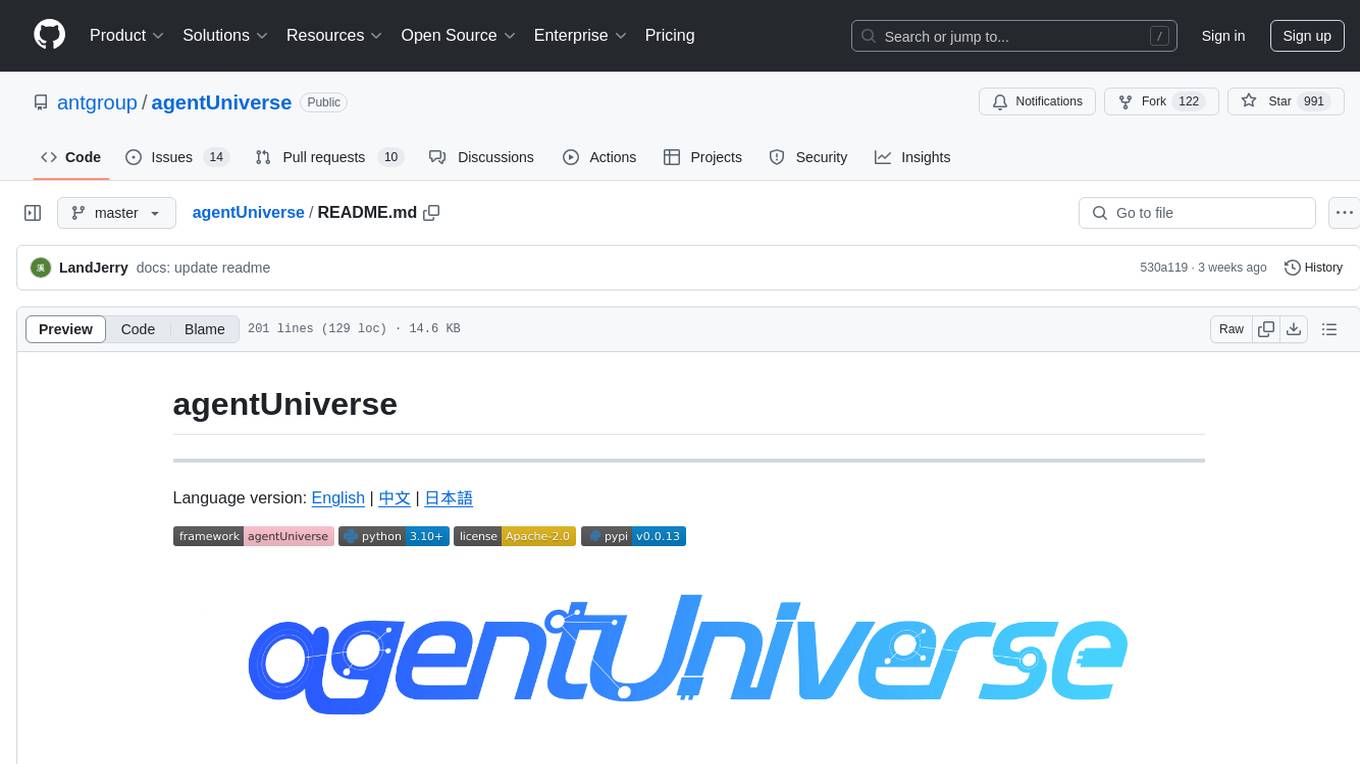
agentUniverse
agentUniverse is a multi-agent framework based on large language models, providing flexible capabilities for building individual agents. It focuses on multi-agent collaborative patterns, integrating domain experience to help agents solve problems in various fields. The framework includes pattern components like PEER and DOE for event interpretation, industry analysis, and financial report generation. It offers features for agent construction, multi-agent collaboration, and domain expertise integration, aiming to create intelligent applications with professional know-how.
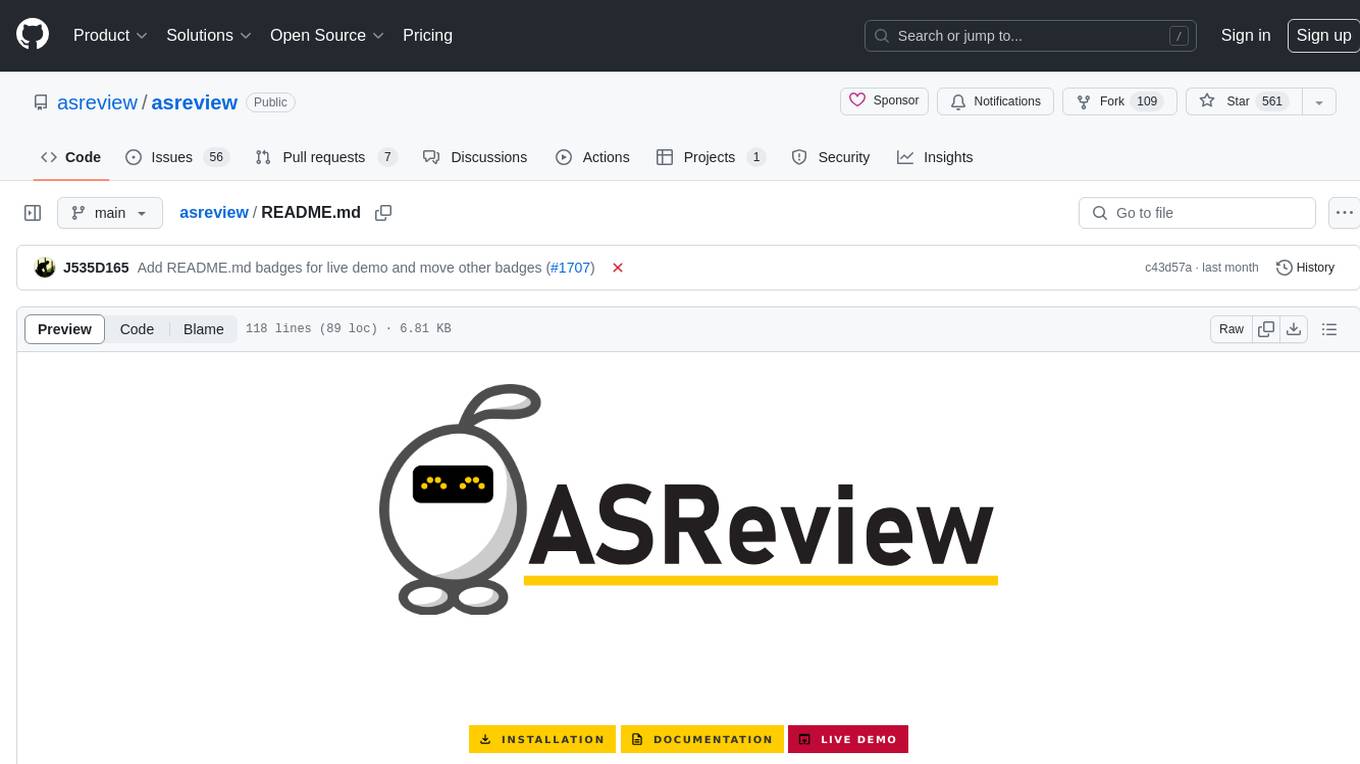
asreview
The ASReview project implements active learning for systematic reviews, utilizing AI-aided pipelines to assist in finding relevant texts for search tasks. It accelerates the screening of textual data with minimal human input, saving time and increasing output quality. The software offers three modes: Oracle for interactive screening, Exploration for teaching purposes, and Simulation for evaluating active learning models. ASReview LAB is designed to support decision-making in any discipline or industry by improving efficiency and transparency in screening large amounts of textual data.

aitour-interact-with-llms
This repository is for the AI Tour workshop: Interacting with Multimodal models in Azure AI Foundry. The workshop provides a hands-on introduction to core concepts and best practices for interacting with OpenAI models in Azure AI Foundry portal. Participants can innovate with Azure OpenAI's GPT-4o multimodal model to generate text, sound, and images using GPT-4o-mini, DALL-E, and GPT-4o-realtime. The workshop also covers creating AI Agents to enhance user experiences and drive innovation. It includes instructions, resources for continued learning, and information on responsible AI practices.
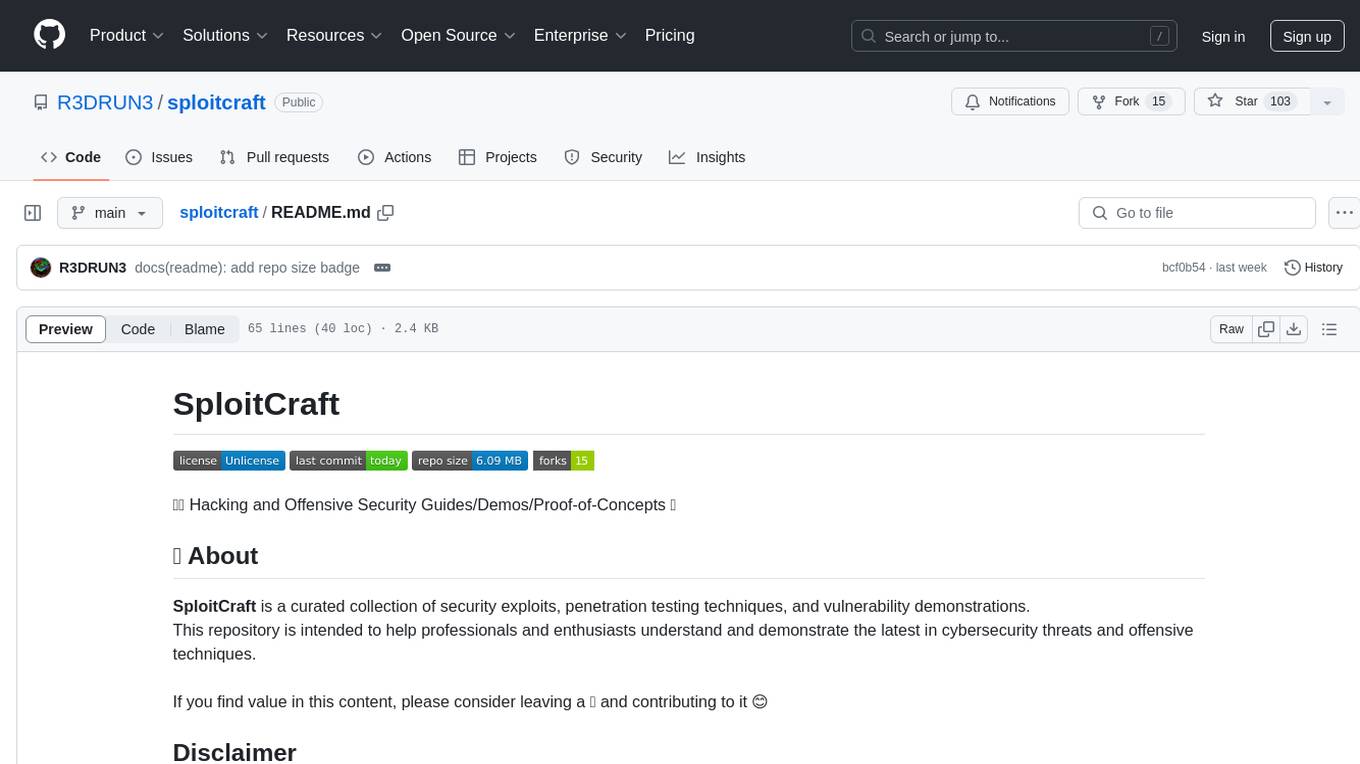
sploitcraft
SploitCraft is a curated collection of security exploits, penetration testing techniques, and vulnerability demonstrations intended to help professionals and enthusiasts understand and demonstrate the latest in cybersecurity threats and offensive techniques. The repository is organized into folders based on specific topics, each containing directories and detailed READMEs with step-by-step instructions. Contributions from the community are welcome, with a focus on adding new proof of concepts or expanding existing ones while adhering to the current structure and format of the repository.
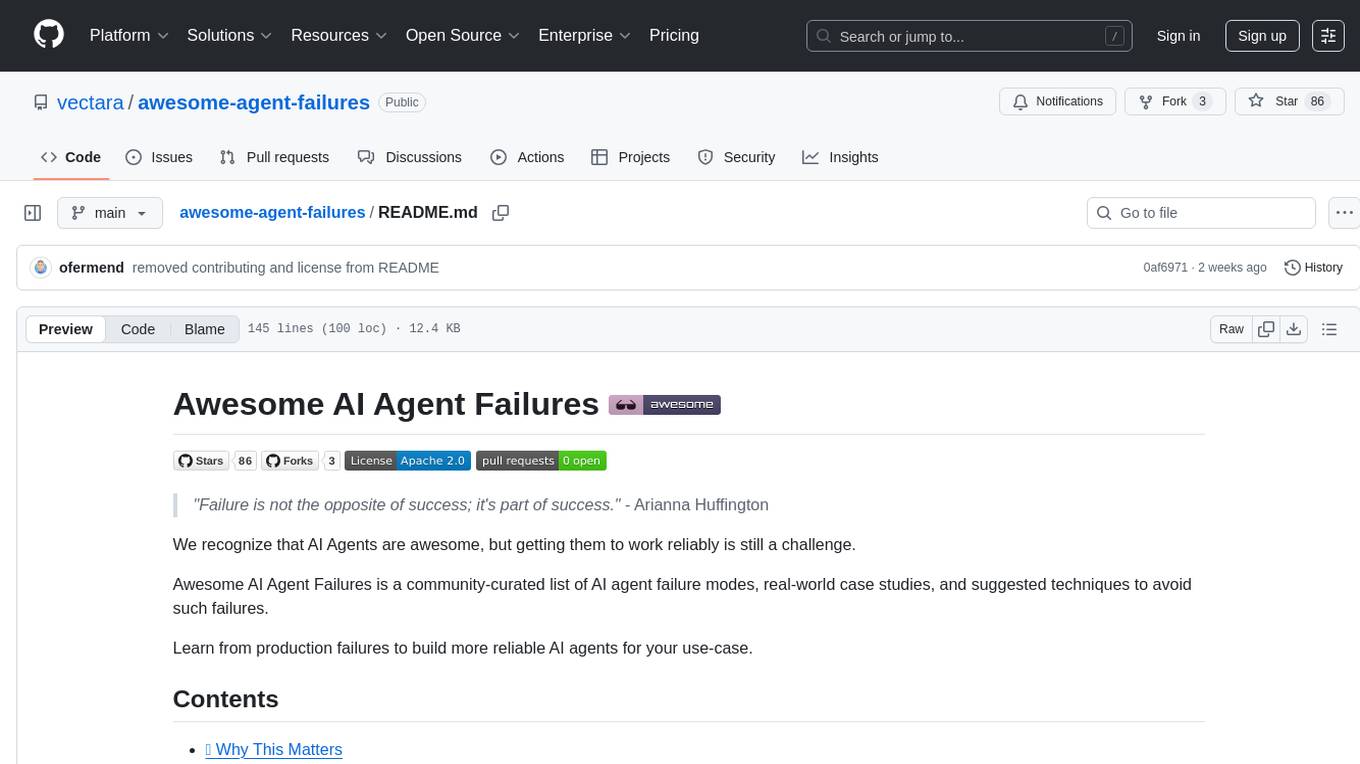
awesome-agent-failures
Awesome AI Agent Failures is a community-curated repository documenting known failure modes for AI agents, real-world case studies, and techniques to avoid failures. It provides insights into common failure modes such as tool hallucination, response hallucination, goal misinterpretation, plan generation failures, incorrect tool use, verification & termination failures, and prompt injection. The repository also includes resources like research papers, industry resources, books, external resources, and related awesome lists to help AI engineers build more reliable AI agents by learning from production failures.
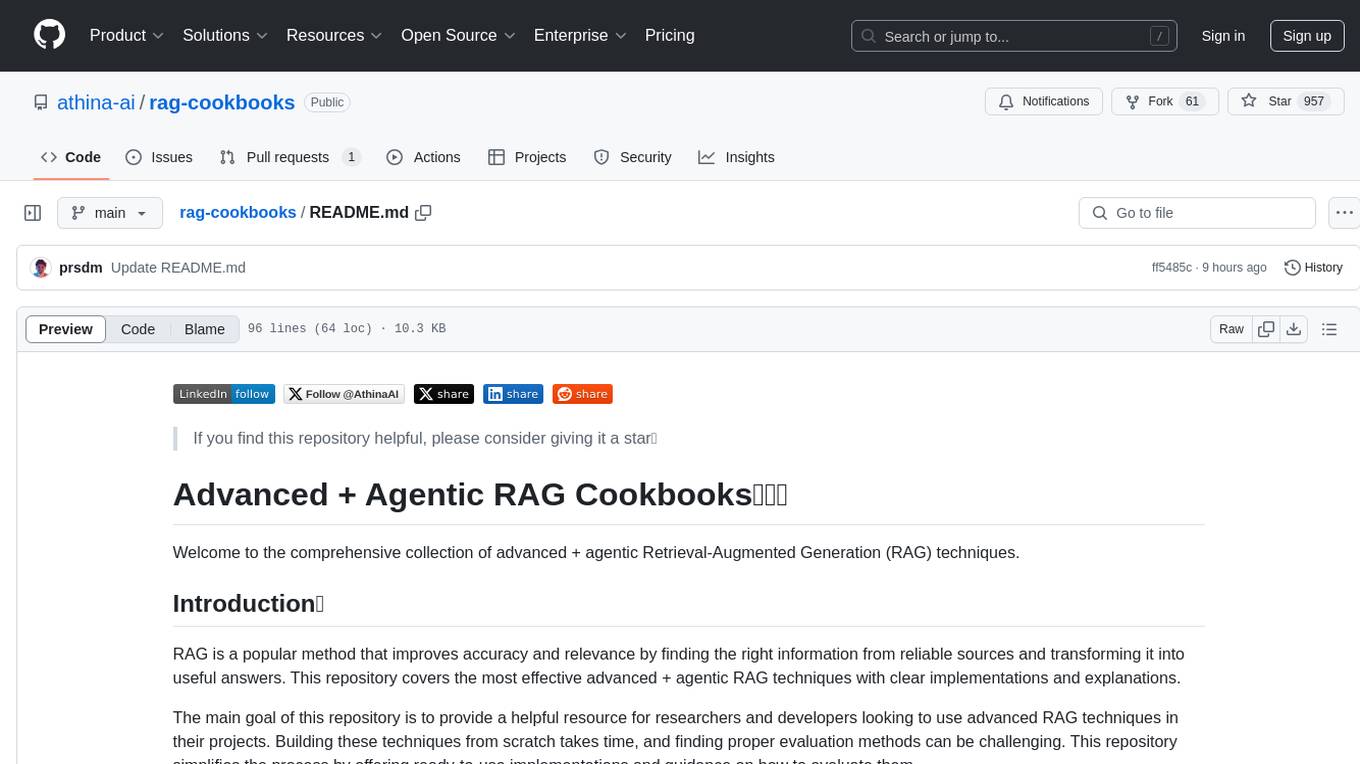
rag-cookbooks
Welcome to the comprehensive collection of advanced + agentic Retrieval-Augmented Generation (RAG) techniques. This repository covers the most effective advanced + agentic RAG techniques with clear implementations and explanations. It aims to provide a helpful resource for researchers and developers looking to use advanced RAG techniques in their projects, offering ready-to-use implementations and guidance on evaluation methods. The RAG framework addresses limitations of Large Language Models by using external documents for in-context learning, ensuring contextually relevant and accurate responses. The repository includes detailed descriptions of various RAG techniques, tools used, and implementation guidance for each technique.
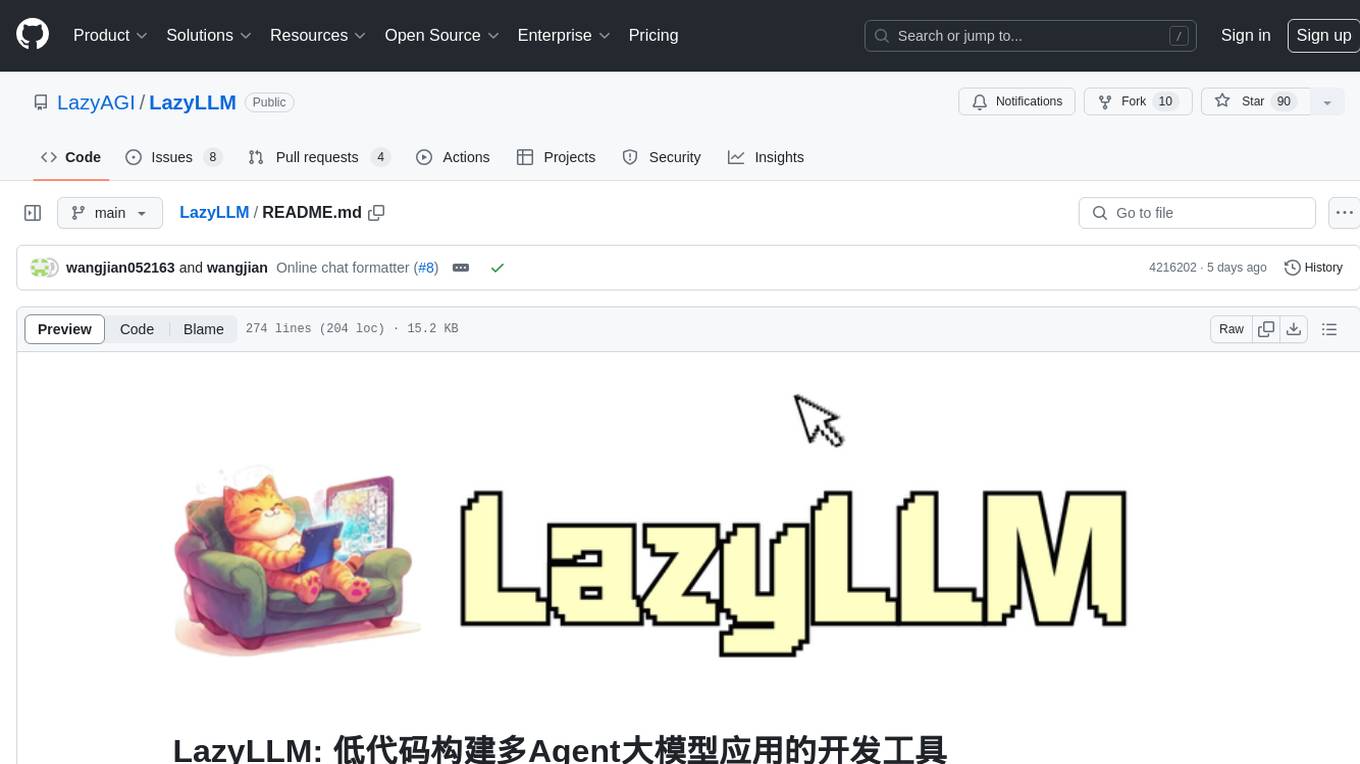
LazyLLM
LazyLLM is a low-code development tool for building complex AI applications with multiple agents. It assists developers in building AI applications at a low cost and continuously optimizing their performance. The tool provides a convenient workflow for application development and offers standard processes and tools for various stages of application development. Users can quickly prototype applications with LazyLLM, analyze bad cases with scenario task data, and iteratively optimize key components to enhance the overall application performance. LazyLLM aims to simplify the AI application development process and provide flexibility for both beginners and experts to create high-quality applications.
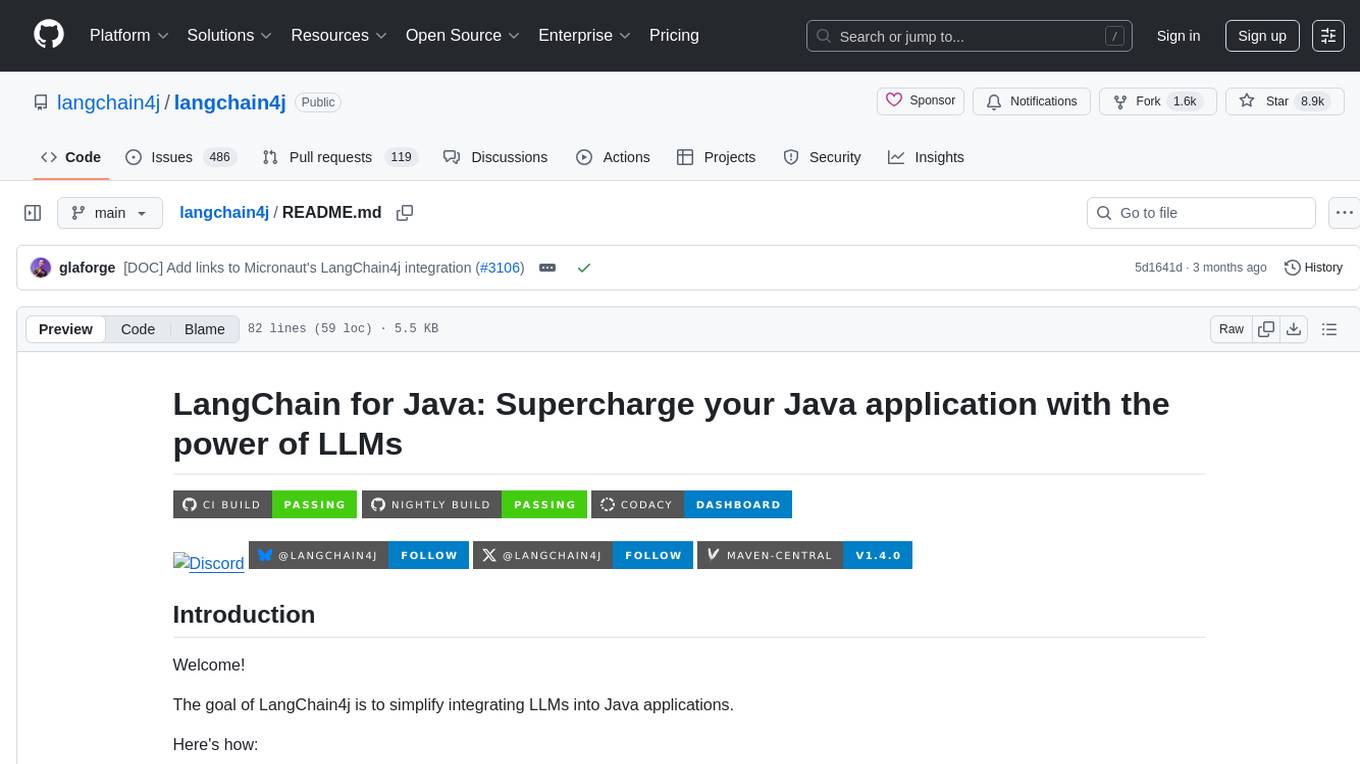
langchain4j
LangChain for Java simplifies integrating Large Language Models (LLMs) into Java applications by offering unified APIs for various LLM providers and embedding stores. It provides a comprehensive toolbox with tools for prompt templating, chat memory management, function calling, and high-level patterns like Agents and RAG. The library supports 15+ popular LLM providers and 15+ embedding stores, offering numerous examples to help users quickly start building LLM-powered applications. LangChain4j is a fusion of ideas from various projects and actively incorporates new techniques and integrations to keep users up-to-date. The project is under active development, with core functionality already in place for users to start building LLM-powered apps.
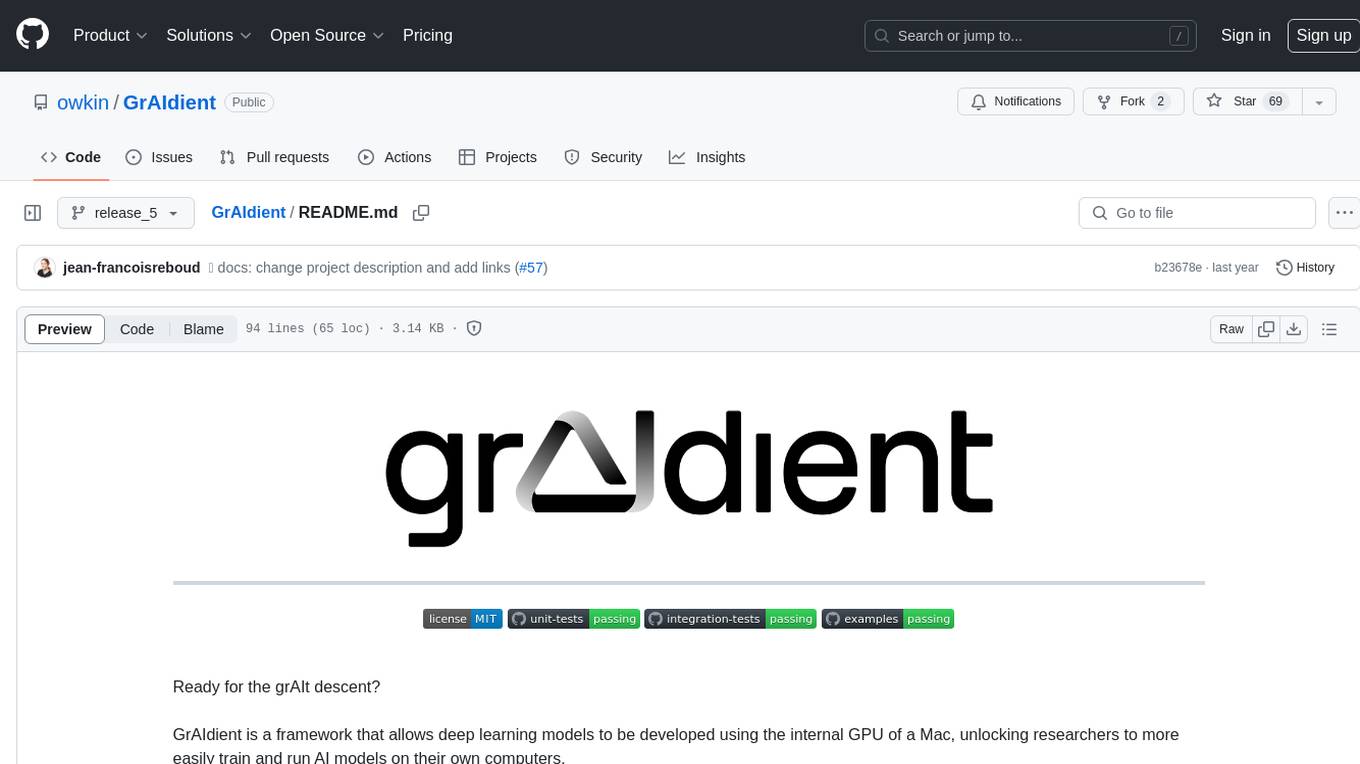
GrAIdient
GrAIdient is a framework designed to enable the development of deep learning models using the internal GPU of a Mac. It provides access to the graph of layers, allowing for unique model design with greater understanding, control, and reproducibility. The goal is to challenge the understanding of deep learning models, transitioning from black box to white box models. Key features include direct access to layers, native Mac GPU support, Swift language implementation, gradient checking, PyTorch interoperability, and more. The documentation covers main concepts, architecture, and examples. GrAIdient is MIT licensed.
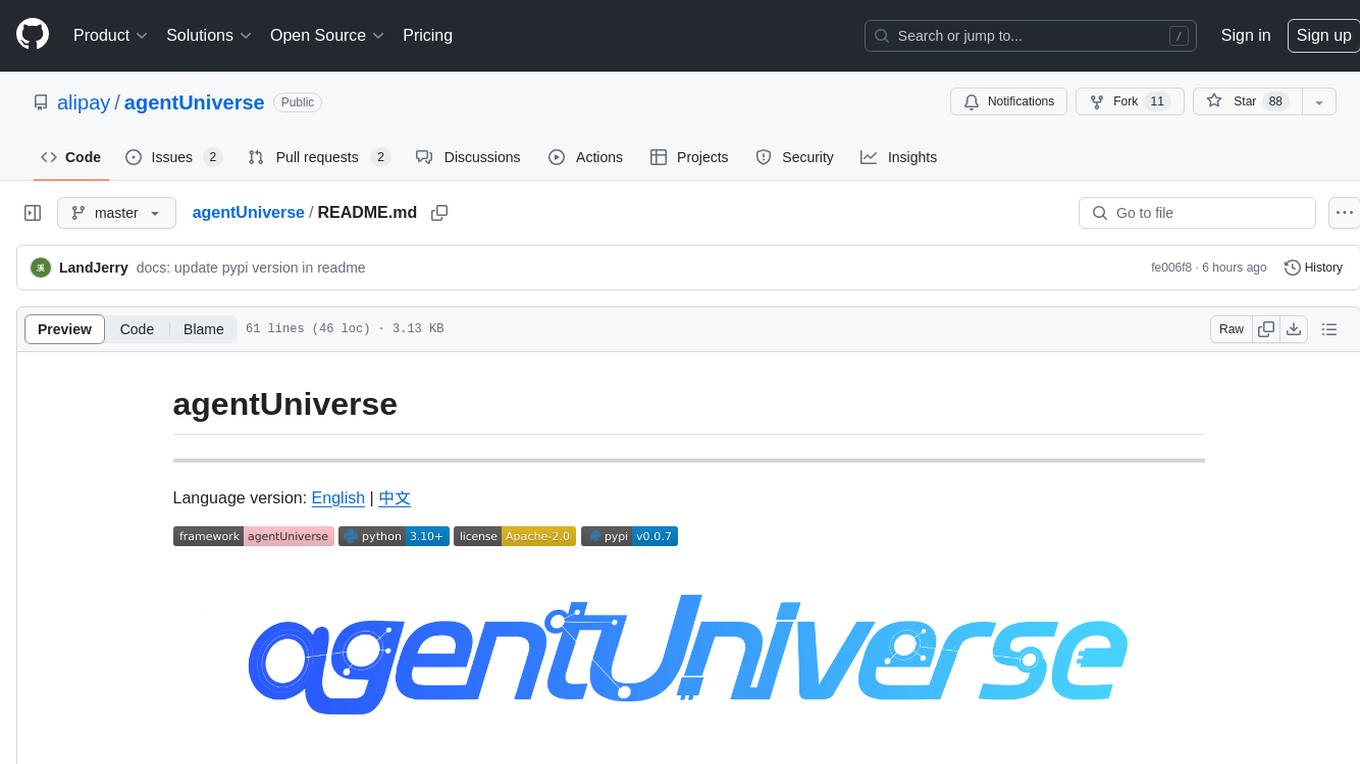
agentUniverse
agentUniverse is a framework for developing applications powered by multi-agent based on large language model. It provides essential components for building single agent and multi-agent collaboration mechanism for customizing collaboration patterns. Developers can easily construct multi-agent applications and share pattern practices from different fields. The framework includes pre-installed collaboration patterns like PEER and DOE for complex task breakdown and data-intensive tasks.
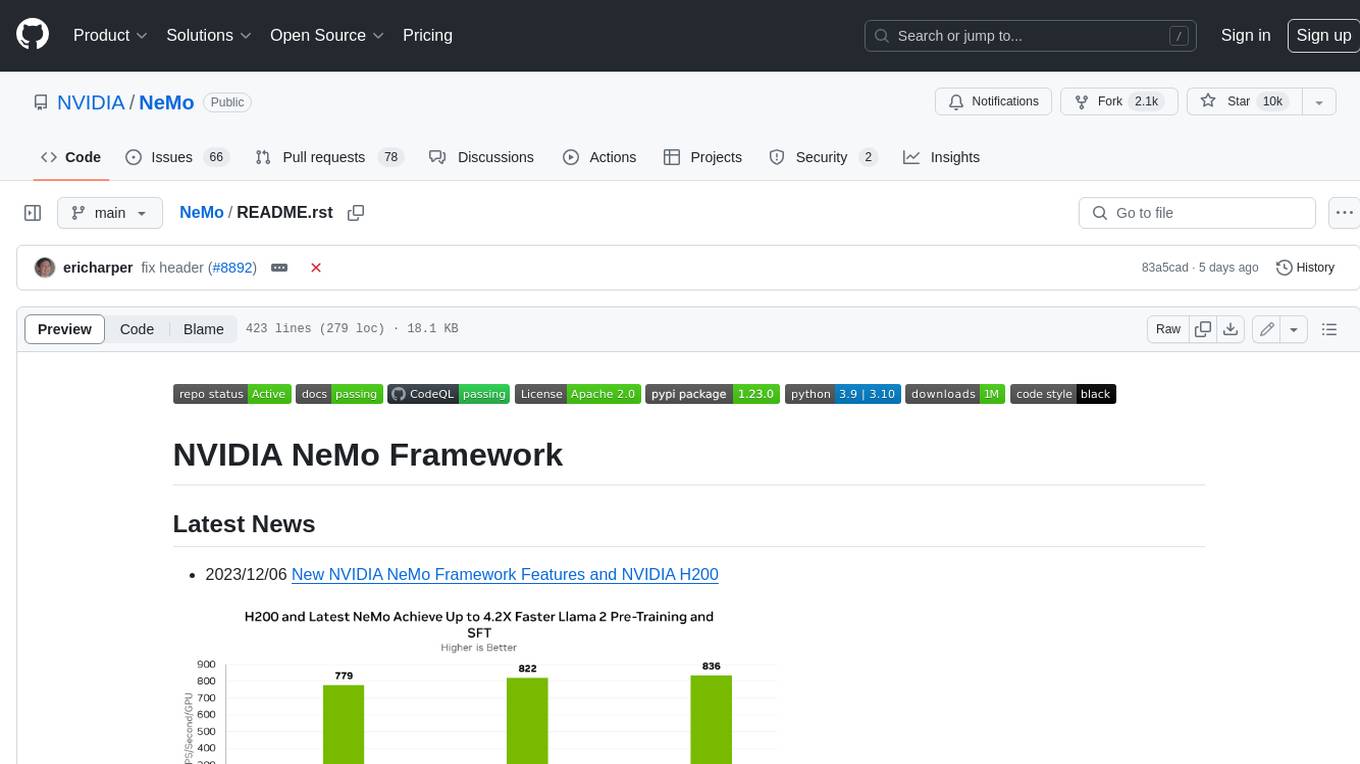
NeMo
NeMo Framework is a generative AI framework built for researchers and pytorch developers working on large language models (LLMs), multimodal models (MM), automatic speech recognition (ASR), and text-to-speech synthesis (TTS). The primary objective of NeMo is to provide a scalable framework for researchers and developers from industry and academia to more easily implement and design new generative AI models by being able to leverage existing code and pretrained models.
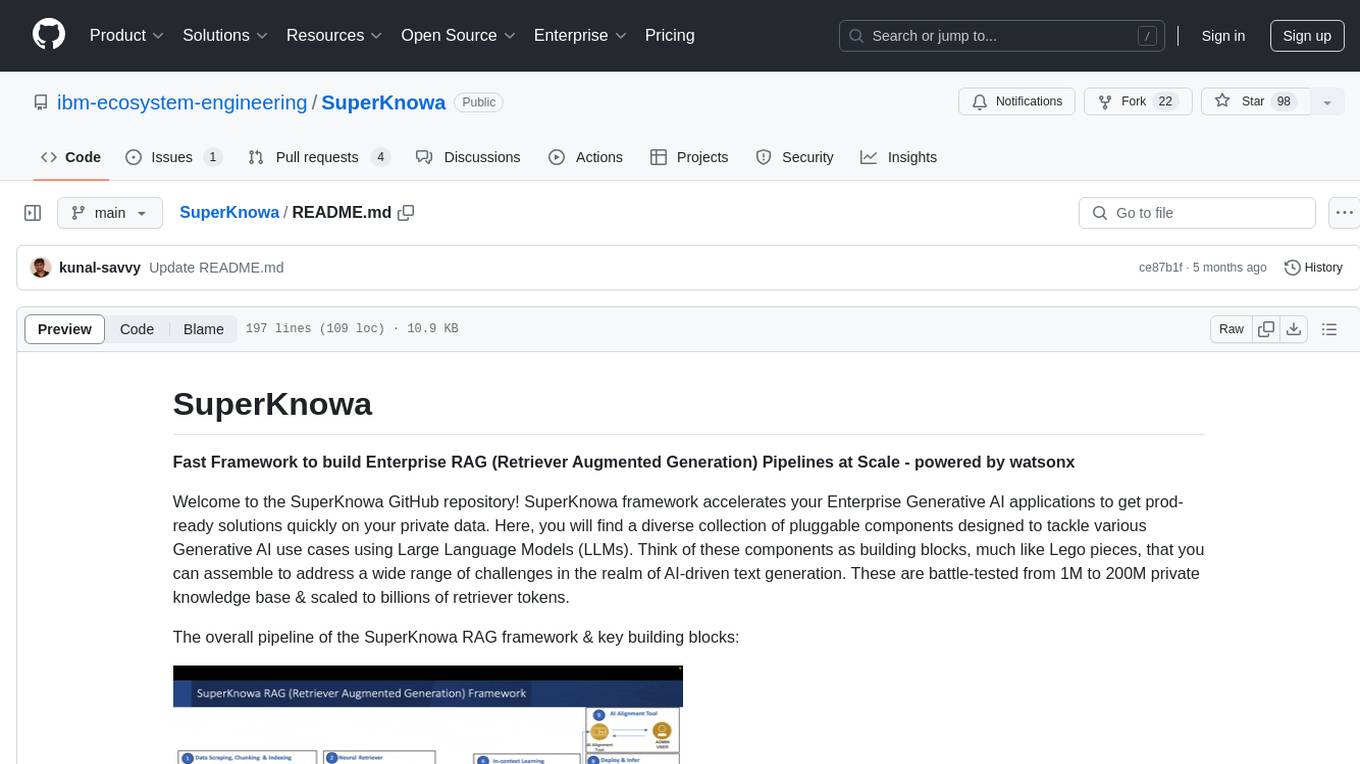
SuperKnowa
SuperKnowa is a fast framework to build Enterprise RAG (Retriever Augmented Generation) Pipelines at Scale, powered by watsonx. It accelerates Enterprise Generative AI applications to get prod-ready solutions quickly on private data. The framework provides pluggable components for tackling various Generative AI use cases using Large Language Models (LLMs), allowing users to assemble building blocks to address challenges in AI-driven text generation. SuperKnowa is battle-tested from 1M to 200M private knowledge base & scaled to billions of retriever tokens.
For similar tasks

PurpleLlama
Purple Llama is an umbrella project that aims to provide tools and evaluations to support responsible development and usage of generative AI models. It encompasses components for cybersecurity and input/output safeguards, with plans to expand in the future. The project emphasizes a collaborative approach, borrowing the concept of purple teaming from cybersecurity, to address potential risks and challenges posed by generative AI. Components within Purple Llama are licensed permissively to foster community collaboration and standardize the development of trust and safety tools for generative AI.
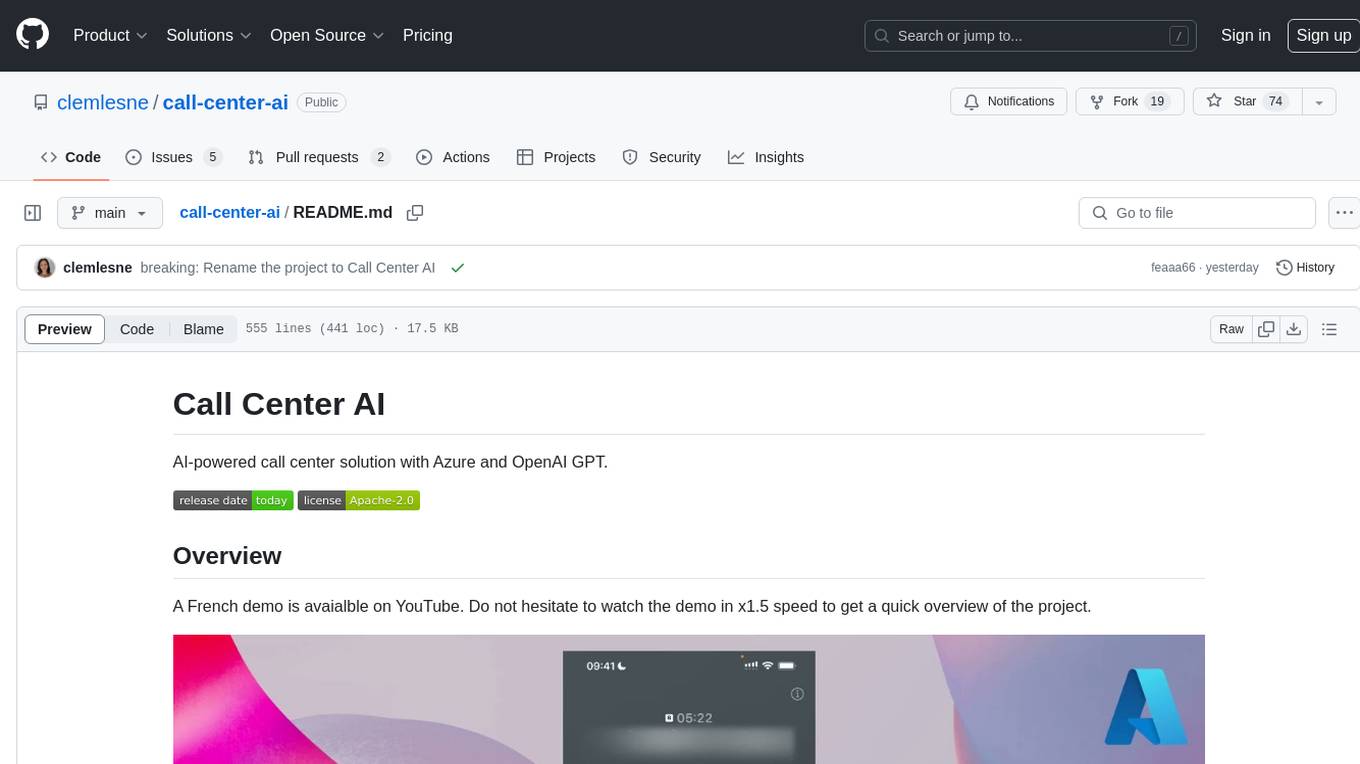
call-center-ai
Call Center AI is an AI-powered call center solution that leverages Azure and OpenAI GPT. It is a proof of concept demonstrating the integration of Azure Communication Services, Azure Cognitive Services, and Azure OpenAI to build an automated call center solution. The project showcases features like accessing claims on a public website, customer conversation history, language change during conversation, bot interaction via phone number, multiple voice tones, lexicon understanding, todo list creation, customizable prompts, content filtering, GPT-4 Turbo for customer requests, specific data schema for claims, documentation database access, SMS report sending, conversation resumption, and more. The system architecture includes components like RAG AI Search, SMS gateway, call gateway, moderation, Cosmos DB, event broker, GPT-4 Turbo, Redis cache, translation service, and more. The tool can be deployed remotely using GitHub Actions and locally with prerequisites like Azure environment setup, configuration file creation, and resource hosting. Advanced usage includes custom training data with AI Search, prompt customization, language customization, moderation level customization, claim data schema customization, OpenAI compatible model usage for the LLM, and Twilio integration for SMS.
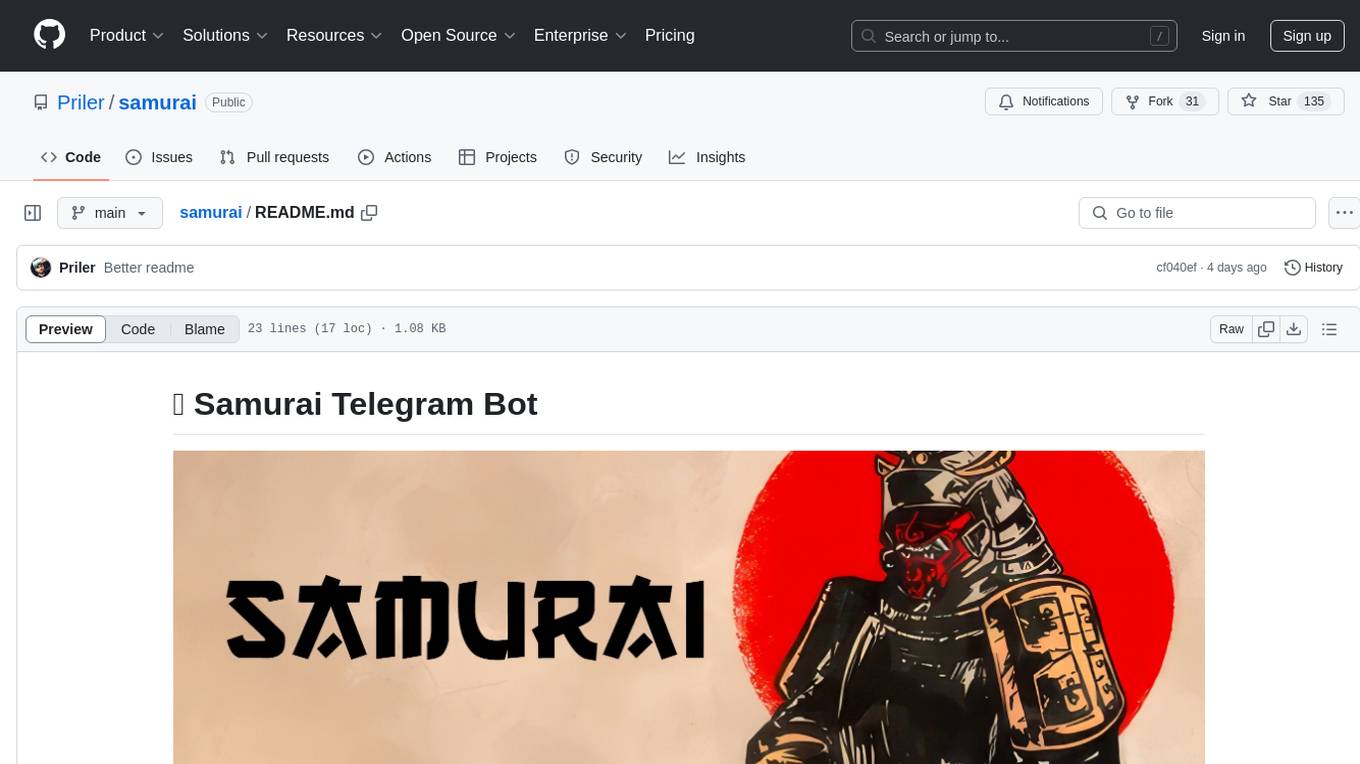
samurai
Samurai Telegram Bot is a simple yet effective moderator bot for Telegram. It provides features such as reporting functionality, profanity filtering in English and Russian, logging system via private channel, spam detection AI, and easy extensibility of bot code and functions. Please note that the code is not polished and is provided 'as is', with room for improvements.
For similar jobs

weave
Weave is a toolkit for developing Generative AI applications, built by Weights & Biases. With Weave, you can log and debug language model inputs, outputs, and traces; build rigorous, apples-to-apples evaluations for language model use cases; and organize all the information generated across the LLM workflow, from experimentation to evaluations to production. Weave aims to bring rigor, best-practices, and composability to the inherently experimental process of developing Generative AI software, without introducing cognitive overhead.

LLMStack
LLMStack is a no-code platform for building generative AI agents, workflows, and chatbots. It allows users to connect their own data, internal tools, and GPT-powered models without any coding experience. LLMStack can be deployed to the cloud or on-premise and can be accessed via HTTP API or triggered from Slack or Discord.

VisionCraft
The VisionCraft API is a free API for using over 100 different AI models. From images to sound.

kaito
Kaito is an operator that automates the AI/ML inference model deployment in a Kubernetes cluster. It manages large model files using container images, avoids tuning deployment parameters to fit GPU hardware by providing preset configurations, auto-provisions GPU nodes based on model requirements, and hosts large model images in the public Microsoft Container Registry (MCR) if the license allows. Using Kaito, the workflow of onboarding large AI inference models in Kubernetes is largely simplified.

PyRIT
PyRIT is an open access automation framework designed to empower security professionals and ML engineers to red team foundation models and their applications. It automates AI Red Teaming tasks to allow operators to focus on more complicated and time-consuming tasks and can also identify security harms such as misuse (e.g., malware generation, jailbreaking), and privacy harms (e.g., identity theft). The goal is to allow researchers to have a baseline of how well their model and entire inference pipeline is doing against different harm categories and to be able to compare that baseline to future iterations of their model. This allows them to have empirical data on how well their model is doing today, and detect any degradation of performance based on future improvements.

tabby
Tabby is a self-hosted AI coding assistant, offering an open-source and on-premises alternative to GitHub Copilot. It boasts several key features: * Self-contained, with no need for a DBMS or cloud service. * OpenAPI interface, easy to integrate with existing infrastructure (e.g Cloud IDE). * Supports consumer-grade GPUs.

spear
SPEAR (Simulator for Photorealistic Embodied AI Research) is a powerful tool for training embodied agents. It features 300 unique virtual indoor environments with 2,566 unique rooms and 17,234 unique objects that can be manipulated individually. Each environment is designed by a professional artist and features detailed geometry, photorealistic materials, and a unique floor plan and object layout. SPEAR is implemented as Unreal Engine assets and provides an OpenAI Gym interface for interacting with the environments via Python.

Magick
Magick is a groundbreaking visual AIDE (Artificial Intelligence Development Environment) for no-code data pipelines and multimodal agents. Magick can connect to other services and comes with nodes and templates well-suited for intelligent agents, chatbots, complex reasoning systems and realistic characters.
